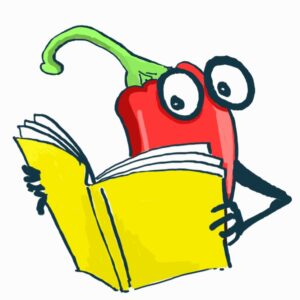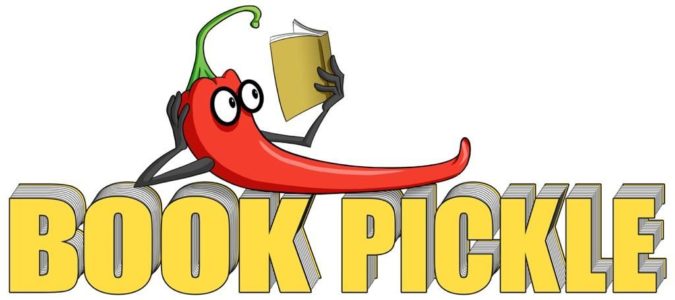I read children’s/YA books.
Yes, I am an adult and I read children’s literature!
And I love it!
(Children’s literature here includes all literature written for children, young readers and young adults. And did you notice, it’s an ‘and’ and not a ‘but’? No, you didn’t! Then work your butt off and start reading all over again!)
There’s a no uncertain degree of embarrassment that adult readers are made to feel when they read children’s books. ‘Why are YOU reading this?’, ‘Are you looking for books for your child?’, ‘Isn’t it too simple?’ etc. are some common questions adult readers of children’s books get asked, almost every day. The more polite ones in bookshops prefer to give us a gentler reminder, as if to shake us out of the world we live in and bring us back to earth and accept the reality of our age with the trite, ‘This is the children’s books section.’ The unstated implication is that the trajectory of a reader should be a one-way street; as you grow up, you read more adult or more complex books, and there’s no turning back.
Condescend and stare away all you want! I am not bothered. I am sure, others like me aren’t bothered by these and similar remarks either. And no, a reader’s trajectory can be a two-way street; in fact, it can be multi-dimensional world in itself!
And if you think only readers of children’s books are subjected to this attitude, then you are wrong. Even authors of children’s books are not spared. Many children’s authors have lamented over the condescending glance they are often given and how they are summarily written off as ‘non-productive’ or as authors who write simple stuff that requires no skill, talent or intelligence. A part of this problem lies in the way we perceive childhood itself. (And I say this from the Indian context.) We glorify innocence, curiosity and virtue in children but we are really uptight in giving them any agency to question and upturn the world order. Children’s opinions and thoughts are considered nothing more than ‘cute’ and ‘adorable’. No wonder then that literature written for these children is also looked down upon by the guardians of the literary ‘canon’.
This begs the question, ‘Why do adults read children’s books?’. While I can’t answer for all the adults who do this, I can certainly tell you why I read such books. I read children’s literature because it is sincere, honest, sensible, funny, creative, thought-provoking, intense and yet unassuming; it reminds me of the various versions of ‘I’ that I have left behind in being me, of everything I need to know and gives me hope in this disintegrating world. I read children’s literature because it is good and as W.H. Auden said, ‘there are no good books which are only for children.’
We live in a messy, stained, polluted, highly polarised and a conniving world where nothing is what it seems to be. We constantly have to read in between the lines when reading or watching news, when analysing reports, opinions, advertisements or even research papers. Even entertainment shows and books (for adults) are not free from bias, subtext and propaganda. It is tiring and taxing to go through this bombardment of half-baked narratives every minute of our lives! Cut to children’s literature. It is a haven from this ethos of duality, deceit and shape-shifting realities. It is sincere, honest (brutally so, at times) and sensible; it allows you to be sane and to weed out confusions and negativity from your thoughts.
These books may build the background knowledge for children, but for adults who read them, these books offer a mirror into the past. They transport you back into your childhood and teach you to experience delight at small things, to long for something or someone, to acknowledge and accept the ‘other’ reality. In other words, children’s literature reminds us of what we have forgotten in the rush of life. Do you find yourself looking haplessly around to make sense of this world? Then read The Spider’s Web by Lata Mani, illustrated by Ashok Rajgopalan to remind yourself of the difference between ‘looking’ and ‘seeing’. Have you bowed down to the demands of this capitalistic world and equate your self-worth with branded items? Do you think only being highly successful can make you happy or whole? Do you often wish if only contentment and bliss were a short ride away? Then, remind yourself of the joys of comfort, the simplicity of practicality, the courage to be free and the bliss of following one’s passion by reading Just a Train Ride Away by Mini Shrinivasan. When you think we need more educated people around us and that India can grow and prosper only when the illiterates learn to be more civil, then read Jungu the Baiga Princess by Vithal Rajan, illustrated by Srivi Kalyan to remind yourself that education can come in different forms and that civility has more to do with the self than education. Do you feel powerless and helpless at times? Then read The Year of the Weeds by Siddhartha Sarma to learn the power of an idea that can shake mammoths. Children’s literature rekindles the miracle of hope. It allows you to untether yourself from all the shackles that the mind or society has imposed on you and allows you to fly free in the world of imagination and come back knowing that everything is possible. It’s a reminder that it is imagination that makes us human. And then, as Wordsworth said, ‘The child is the father of man.’. It is then only logical that books written for that child can birth the ‘man’ or the ‘woman’ you aspire to be.
However, this doesn’t mean that children’s literature is only nostalgic, simple and easy. Quite the contrary! It is a complex interplay between words, pictures, images and imagery. The topics and themes represented in children’s literature can be equally bold, topical and controversial. The narrative is often layered and nuanced and simplicity is beguiling; if you savour it and absorb it in, it opens its arms wide to let you in and whispers the deepest secrets of the universe. It is the honest, creative and thought-provoking treatment of these themes and topics that makes these books as impactful and intense as so-called books written for so-called adults! And these books are funnier too! In fact, I would go as far as to say that the zeitgeist of a society can be best gleaned from the children’s literature it produces.
Books for adults are heavily reviewed, marketed and critiqued in mainstream media these days. You are most likely to be biased in favour of or against a narrative through such marketing campaigns even before you pick up the actual book. The world of children’s literature is sort of insulated from this madness in many ways. These books help us make sense of the world we live in without getting too morose or nihilistic about it. They are reviewed and critiqued, too, but often with the same honesty and sincerity with which they were written in the first place. The vain and highbrow attitude of books for adults is invariably avoided in the world of children’s literature.
Above all, these books connect with the child in each one of us. They strike a chord with the innermost desire for purity, peace and hope and resonate with us in ways books for adults cannot. I don’t mean to imply that one shouldn’t read books written for adults. By all means, read them! I read them, too! Just don’t assume that something written for children and young adults is too simplistic, intellectually degrading or simply not worth the time!
Humans build stories all the time; we try to impose the story structure on the chaos of life. We crave for good stories and the world of children’s literature can offer this effortlessly. Just dip in!
So then, the question should be ‘Why aren’t you reading children’s books?’
Further Reading
The Storytelling Animal: How Stories Make Us Human, Jonathan Gottschal (book)
Why You Should Read Children’s Books Even Though You Are So Old and Wise, Katherine Rundell (an essay)
The Value of Children’s Literature by Martha Crippen (an article)
Why Adults Should Read Children’s and Young Adult Literature, Leah Wright (an article)
